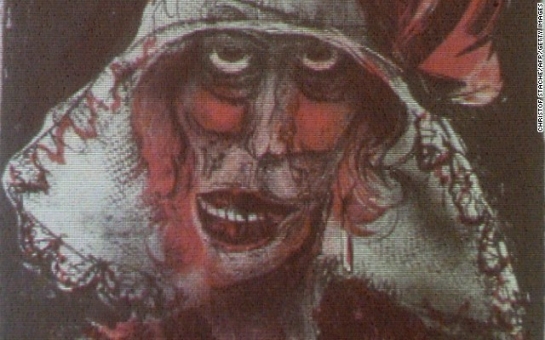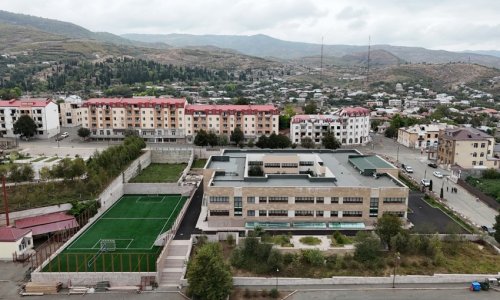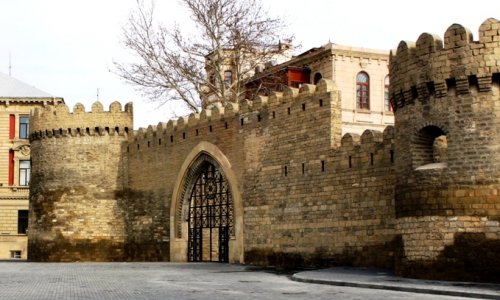Prosecutors said they had returned the seized collection to Cornelius Gurlitt, who inherited the almost priceless artworks from his father, in light of new evidence.Their statement came two days after news of a deal between Gurlitt, Germany's cultural authorities and the Bavarian Justice Ministry under which he agreed to allow research into the origins of suspected cases of looted or so-called "degenerate" art.Under the deal, works owned by Gurlitt which are not under suspicion can be returned to him. Those suspected of being stolen will be held securely while a task force investigates their provenance -- and will be returned to their original Jewish owners or their descendants if a claim is proven.Works which have not been investigated by the end of a year will be returned to Gurlitt, it says.It's not clear how many pieces may be the subject of claims from those who believe they were looted decades ago.But a statement on Gurlitt's website says that "according to current information at most 3% of the 1,280 confiscated works" could be involved. That would work out to about 38 paintings.Gurlitt's spokesman, Stephan Holzinger, said Monday that there was a second claimant for a Henri Matisse painting found in his hoard, "Femme assise" or "Seated Woman."Gurlitt's lawyer has said the claim must be properly examined before the painting can be returned. However, this doesn't change Gurlitt's intention to return pictures to their rightful owners if a claim is proven, Holzinger said.Among the staggering haul found in Gurlitt's Munich, Bavaria, apartment in early 2012 were paintings by Pablo Picasso, Henri de Toulouse-Lautrec, Oskar Kokoschka, Canaletto, Pierre-August Renoir, Franz Marc and Gustav Courbet.Gurlitt, 81, says he never suspected that the collection he inherited from his father might include stolen artworks.Thousands of pieces of art condemned as "degenerate" by the Nazis were confiscated from galleries and private collectors in the 1930s and 1940s. Other works were stolen from Jewish families or sold for a fraction of their true value as the owners tried to flee the country.Gurlitt's father, Hildebrand Gurlitt, who was part Jewish, survived the war as one of only four "degenerate art" dealers permitted by Adolf Hitler.Prosecutors cite new evidence, objectionsIt was last May when experts revealed that the artworks -- many long feared lost or destroyed, and some which had never been recorded -- had been discovered in Gurlitt's apartment in the Schwabing area of Munich.The vast collection, which experts have said has "a value so high it cannot be estimated," was recovered by German tax authorities in connection with an inquiry into tax evasion in February and March 2012.In its statement, Wednesday, the prosecutor's office defended its decision to seize the cache, now known as the Schwabing art trove, on the grounds it might contain stolen art."At the time of the confiscation of the entire collection, the Augsburg prosecution was entirely convinced of the rightfulness of the measure," it said.But, it said, the new evidence and the representations of Gurlitt's defense lawyers have led the office "to assess the legal situation anew."The investigation is not yet concluded, however, the prosecution said.The defense has applied to view more files and has yet to make its position public, it added.'Fair solutions'Gurlitt told German magazine Der Spiegel last November that he longed for the paintings he inherited to be returned to him -- and that he regarded them as his only friends.The reclusive retiree also defended his father's wartime dealings, saying "maybe he was offered something privately, but he would not have taken it. It would not have been good for him."His father, by all accounts a savvy dealer, removed the huge collection from his house in Dresden during the devastating bombing in the final days of World War II, and moved it to what later became West Germany.A statement on Gurlitt's website states that he "was at all times convinced that he had inherited a collection from his father that predominantly consisted of so-called degenerate art from former German Reich property in public collections and museums," and that he was unaware it "includes a few works that today can be qualified as looted art."Now, it says, he is "is prepared to review and arrive at fair solutions together with the claimants for those works that are suspected of being looted art in such instances where qualified, documented, and justified claims for their return are asserted by heirs of Jewish of persecution and where morally compelling grounds exist."(CNN)ANN.Az
Confiscated art collection returned to investigate Nazi looting claims
Culture
18:00 | 26.04.2014

Confiscated art collection returned to investigate Nazi looting claims
Part of an art collection confiscated because it may contain pieces looted by the Nazis is being returned to its owner, prosecutors in the German town of Augsburg said Wednesday.
Follow us !










